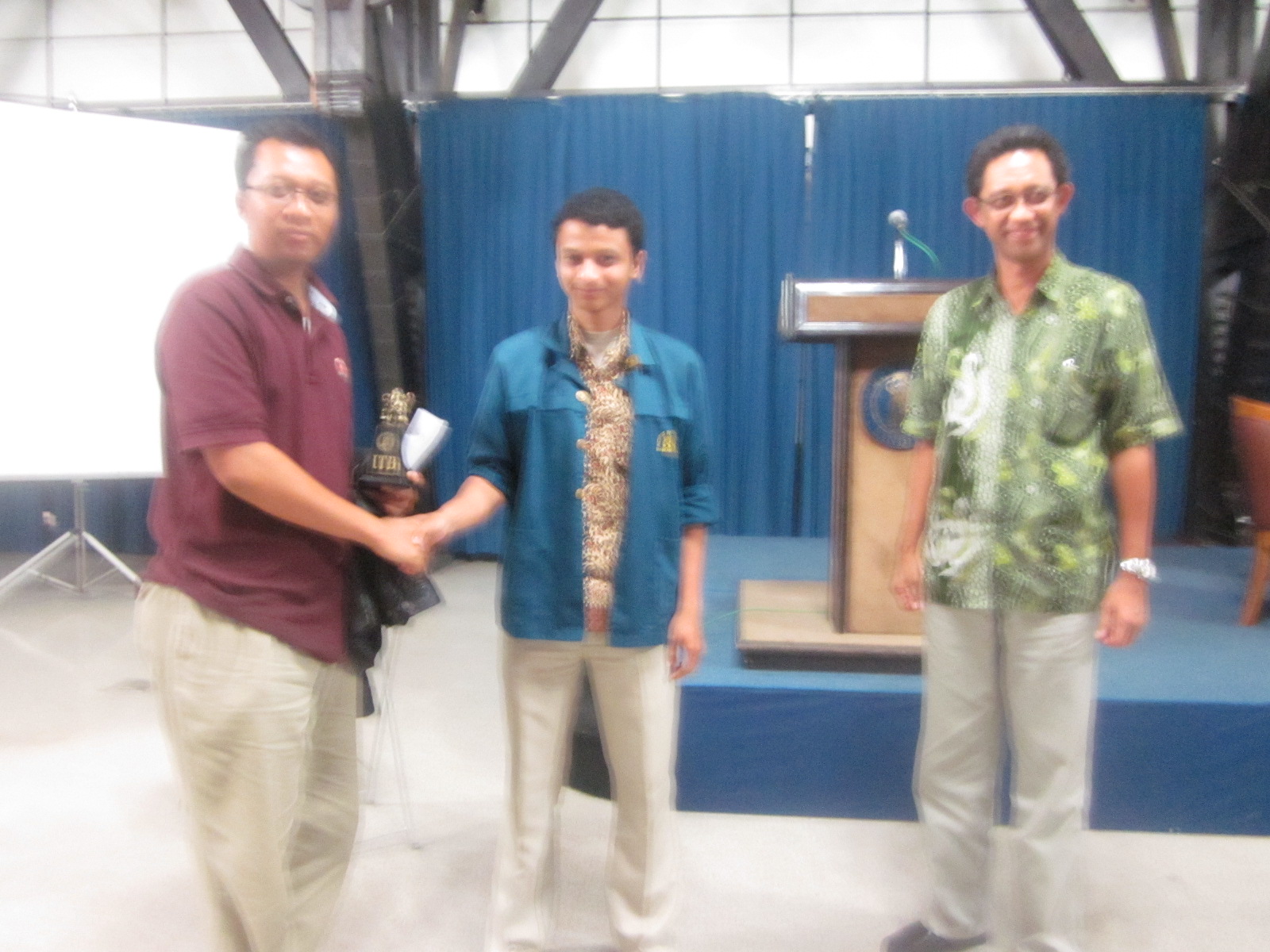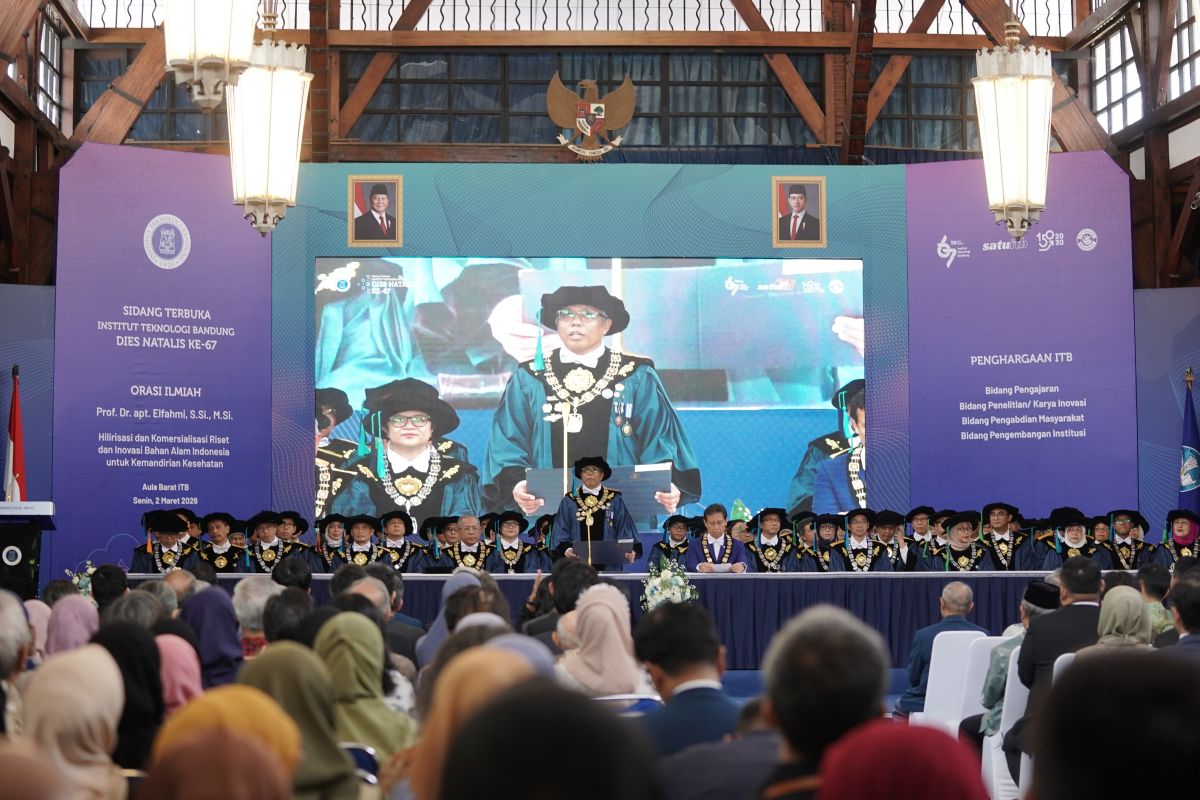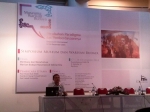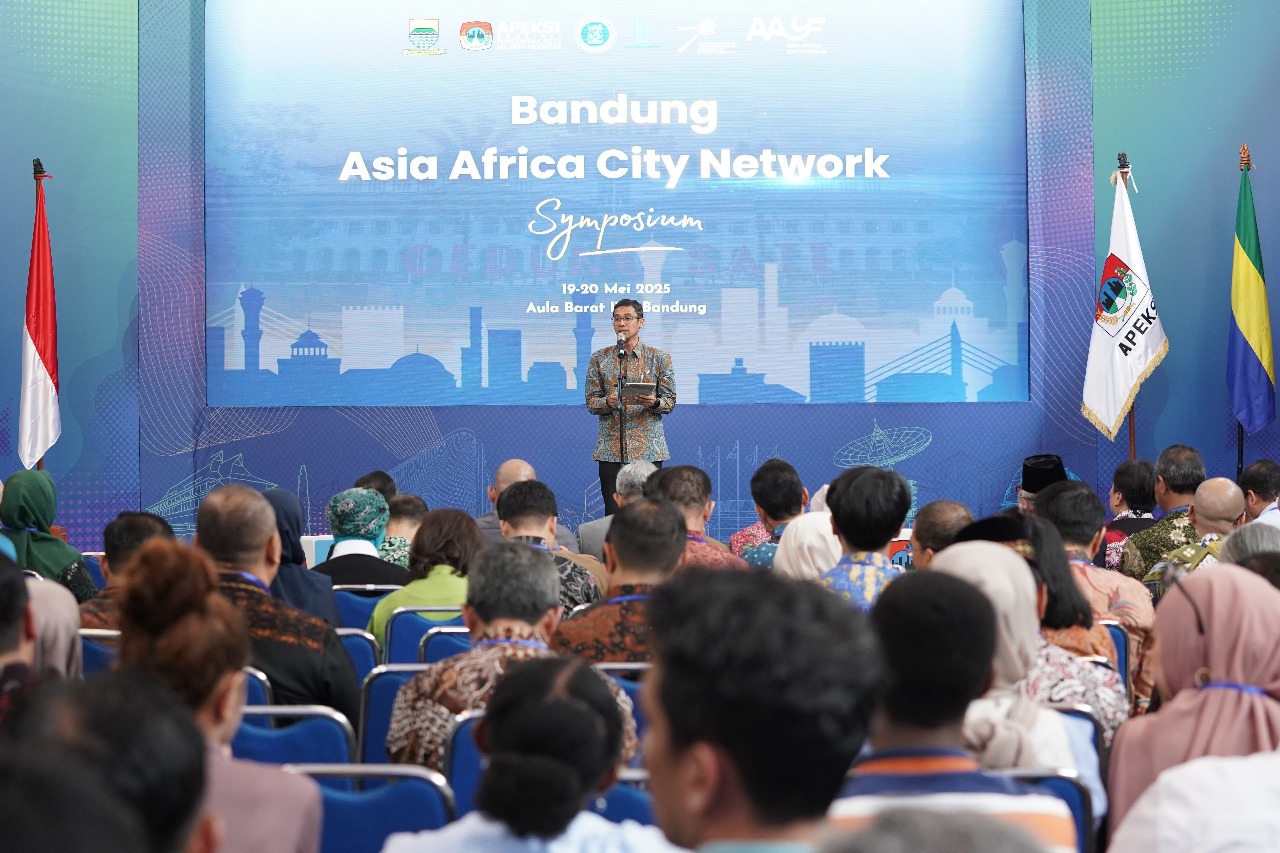Industrial Sciences Symposium: Analyzing and Evaluating National Deindustrialization
By Fathir Ramadhan
Editor Fathir Ramadhan

 BANDUNG, itb.ac.id - Indonesia's industries are currently, surprisingly, weakening. The amount of actors, productivity, and contributions from the industrial sector to national economy is decreasing in the recent years. Concerning industrial sciences, ITB students need to understand not only the technology sides of industries, but also the regulation and legal sides. This is why the Student Cabinet held the Industrial Symposium 2011, themed 'Scoping on the Condition of National Industries'.
BANDUNG, itb.ac.id - Indonesia's industries are currently, surprisingly, weakening. The amount of actors, productivity, and contributions from the industrial sector to national economy is decreasing in the recent years. Concerning industrial sciences, ITB students need to understand not only the technology sides of industries, but also the regulation and legal sides. This is why the Student Cabinet held the Industrial Symposium 2011, themed 'Scoping on the Condition of National Industries'.
The speakers in the symposium are the Metal Industries Director of the Ministry of Industries Ir. I Gusti Putu Suryawirawan, Head oh the West Java Textile Assosiaciton Rizal Tanzil, and House of Representative Commission VI Member Dr. Zulkieflimansyah.
According to Herry Dharmawan, the Student Cabinet President, students are supposed to be able to monitor the government's policies concerning national industries. "In order to achieve that, students need to understand the regulational and legal aspects of national industries," he added. Students are expected to be able to contribute more to the real sector after watching the symposium.
National Deindustrialization Phenomenon
In his paper, Zulkieflimansyah wrote that, according to the Industrial Sector Development Report 2009 of the Department of Industries, the national industrial sector's growth is slowing down in the last couple of years. In 2004, it was 6.38%; and in the years that followed it became 4.6%, 4.59%, 4.67%, 3.66%, and 2.31% in 2009.
Zulkieflimansyah exlained that there were four reasons of why deindustrialization is bad for a country; it makes a country more consumptive, the country becomes more dependant to export countries, reindustrialization will be difficult to conduct, and it makes work-field decrease.
Causes of Deindustrialization
The first reason behind deindustrialization is a non-supportive infrastructure. This includes the quality of roads that remain low and full of holes, especially in islands outside Java. Even in Java, the construction of the Trans Java freeway is going at a snail-like rate.
The second is the complex bureaucracy and administrative matters. A report from 'Doing Business 2011' done by the International Finance Corporation (ICF) and the World Bank stated that out of 183 countries, Indonesia is ranked 121st in bureaucratic process easiness for Small and Medium Enterprises. This puts Indonesia in an equal position to African countries.
The third reason is the high interest rate. This causes Small and Medium Enterprises discouraged to obtain loaned capital from banks. The interest rate for People Enterprises Credit (KUR) was at 14%/year for retail, and 22%/year for micro sector.
Other reasons include human resource competence, inflation rate, and technological savviness. In order to restrengthen the national industries, these factors need an utmost attention from the government.

.jpeg)
.jpg)
.jpg)




